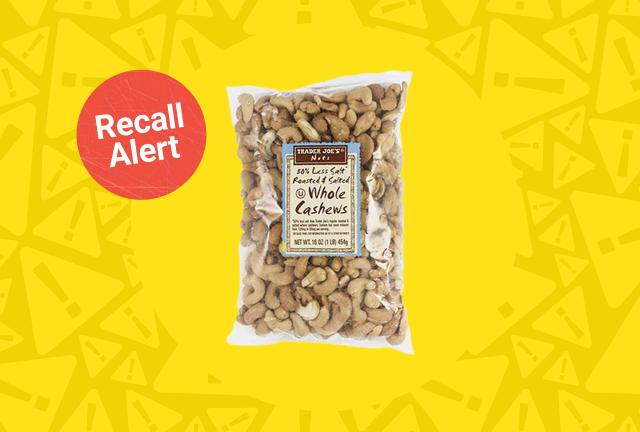The consumers have been alerted to a concerning development involving Trader Joe’s-branded cashew products sold in 16 states. Wenders LLC, the company behind the Trader Joe’s 50% Less Sodium Roasted & Salted Whole Cashews, issued a recall due to potential Salmonella contamination. This recall underscores the importance of vigilance in food safety protocols and the need for swift action to mitigate risks to public health.
The recall was initiated after routine testing revealed the presence of Salmonella in some batches of the cashew product. Salmonella is a bacterium that can cause illness in humans, leading to symptoms such as diarrhea, fever, and abdominal cramps. While no illnesses have been reported thus far in connection with the affected cashews, the proactive recall serves as a preventive measure to safeguard consumers from potential harm.
Identified by specific SKU and lot numbers SKU 37884, lot numbers T12139, T12140, T12141, and T12142 the affected cashew products are being removed from shelves and consumers are urged to return them for a full refund. This swift action by Wenders LLC and Trader Joe’s demonstrates a commitment to prioritizing consumer safety and upholding rigorous quality standards.
Food recalls, while concerning, are an essential component of ensuring food safety and protecting public health. In recent years, there has been an increase in food recalls, attributed in part to improved detection methods and heightened awareness of foodborne hazards. While the majority of food recalls are precautionary measures, they play a crucial role in preventing potential outbreaks and mitigating risks to consumers.
It is noteworthy that this is not the first recall involving Trader Joe’s products. In the past, Trader Joe’s has issued recalls for various reasons, including foreign material contamination concerns. These incidents highlight the complex challenges faced by food manufacturers and retailers in maintaining product integrity throughout the supply chain.
One factor contributing to recalls is the use of smaller-batch production sources, which may increase the risk of foreign material contamination. While smaller-batch production methods offer benefits such as flexibility and customization, they also require stringent quality control measures to minimize the risk of contaminants entering the food supply.
In response to the cashew recall and other similar incidents, regulatory agencies such as the Food and Drug Administration FDA play a critical role in overseeing food safety and enforcing compliance with established standards. Additionally, consumer education and awareness campaigns are essential in empowering individuals to make informed choices about the foods they consume.
As consumers, it is important to remain vigilant and proactive in monitoring food recalls and taking appropriate action if affected products are identified. By staying informed and adhering to recommended guidelines for food safety, we can collectively contribute to a safer and healthier food supply for all.
